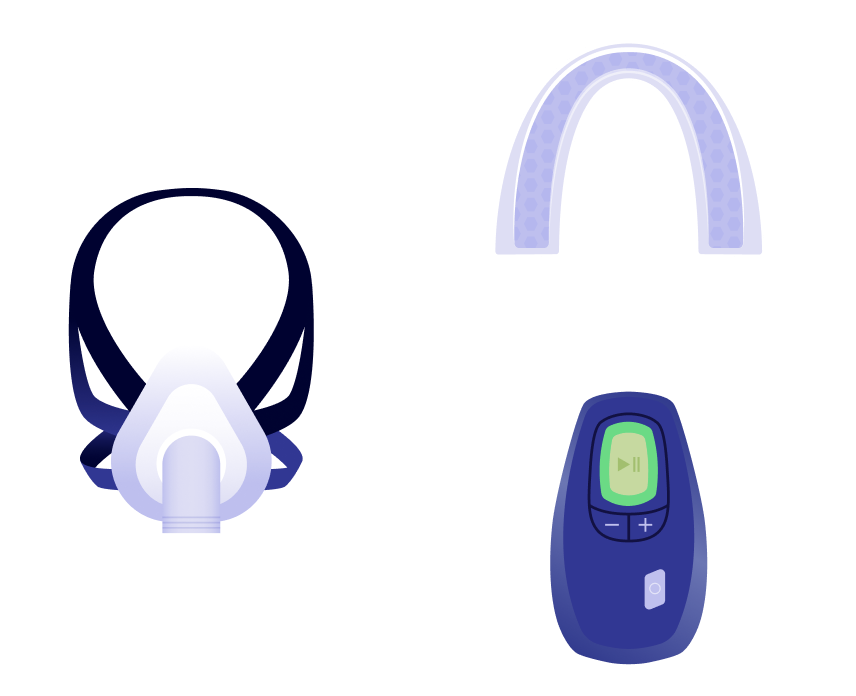What is Sleep Apnoea?
Sleep apnoea is a potentially serious sleep disorder where breathing is repeatedly interrupted during sleep. If you snore loudly and feel tired even after a full night’s sleep, you might have sleep apnoea.
If you think you have sleep apnoea, talk to your doctor. Treatment can ease your sleep apnoea symptoms and help prevent heart problems and other complications.
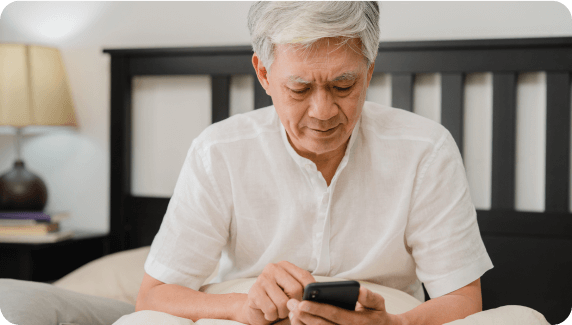
Types of Sleep Apnoea
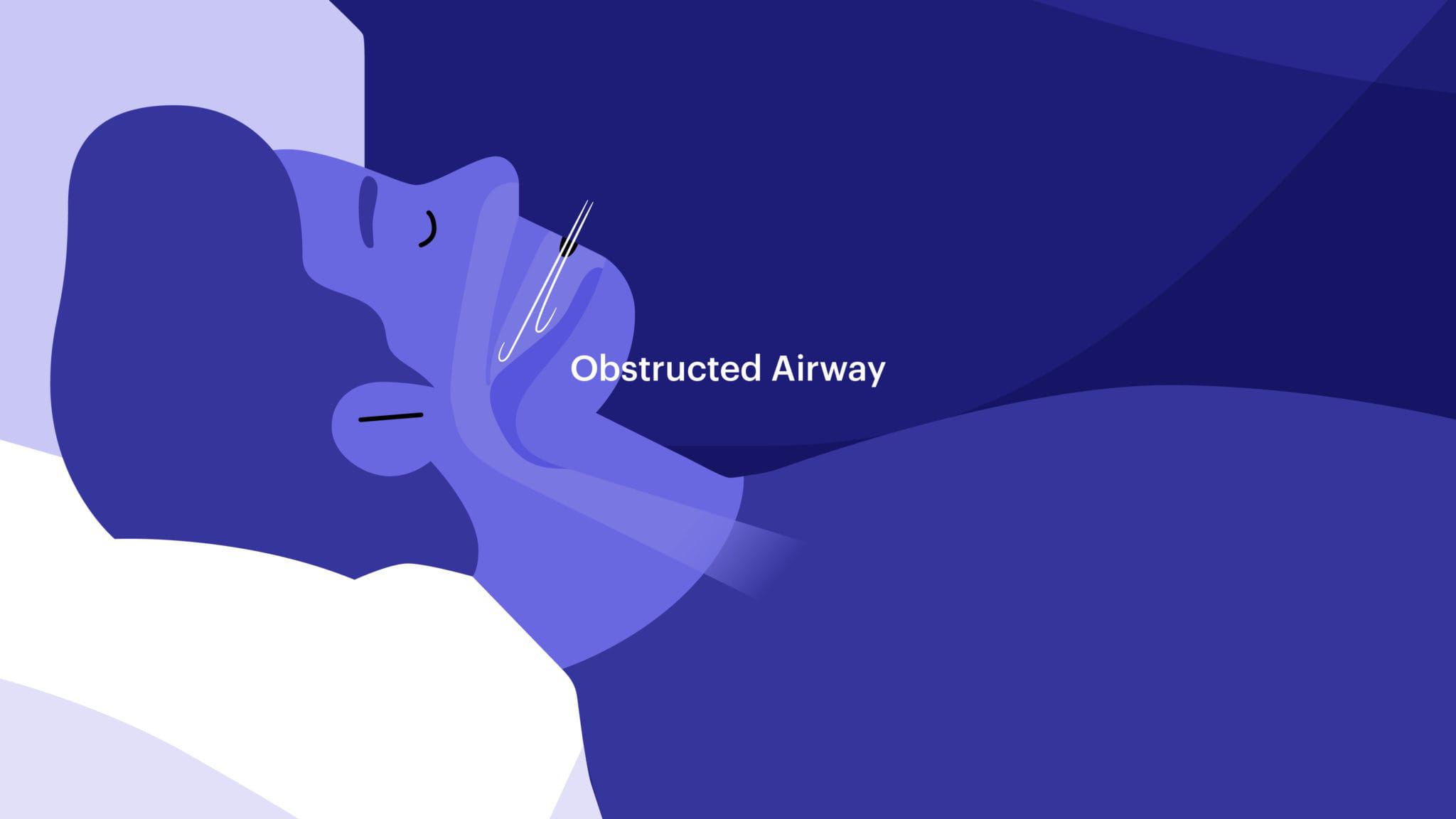
Obstructive Sleep Apnoea
Obstructive Sleep Apnoea is the most common type of sleep apnoea. It occurs when the tongue and other throat muscles relax during sleep, causing your airway to temporarily close.
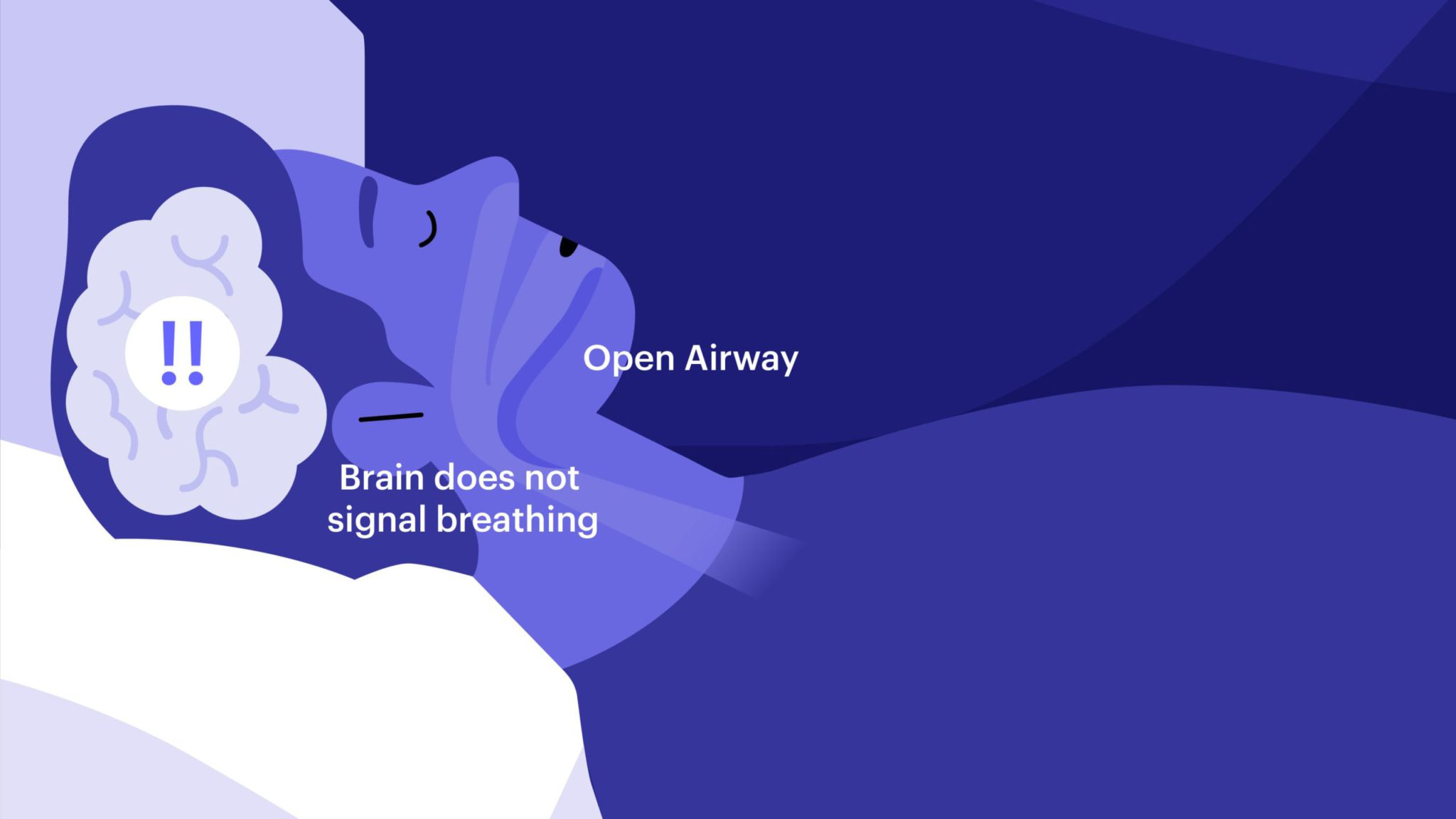
Central Sleep Apnoea
Central Sleep Apnoea occurs when your brain forgets to breathe during sleep.
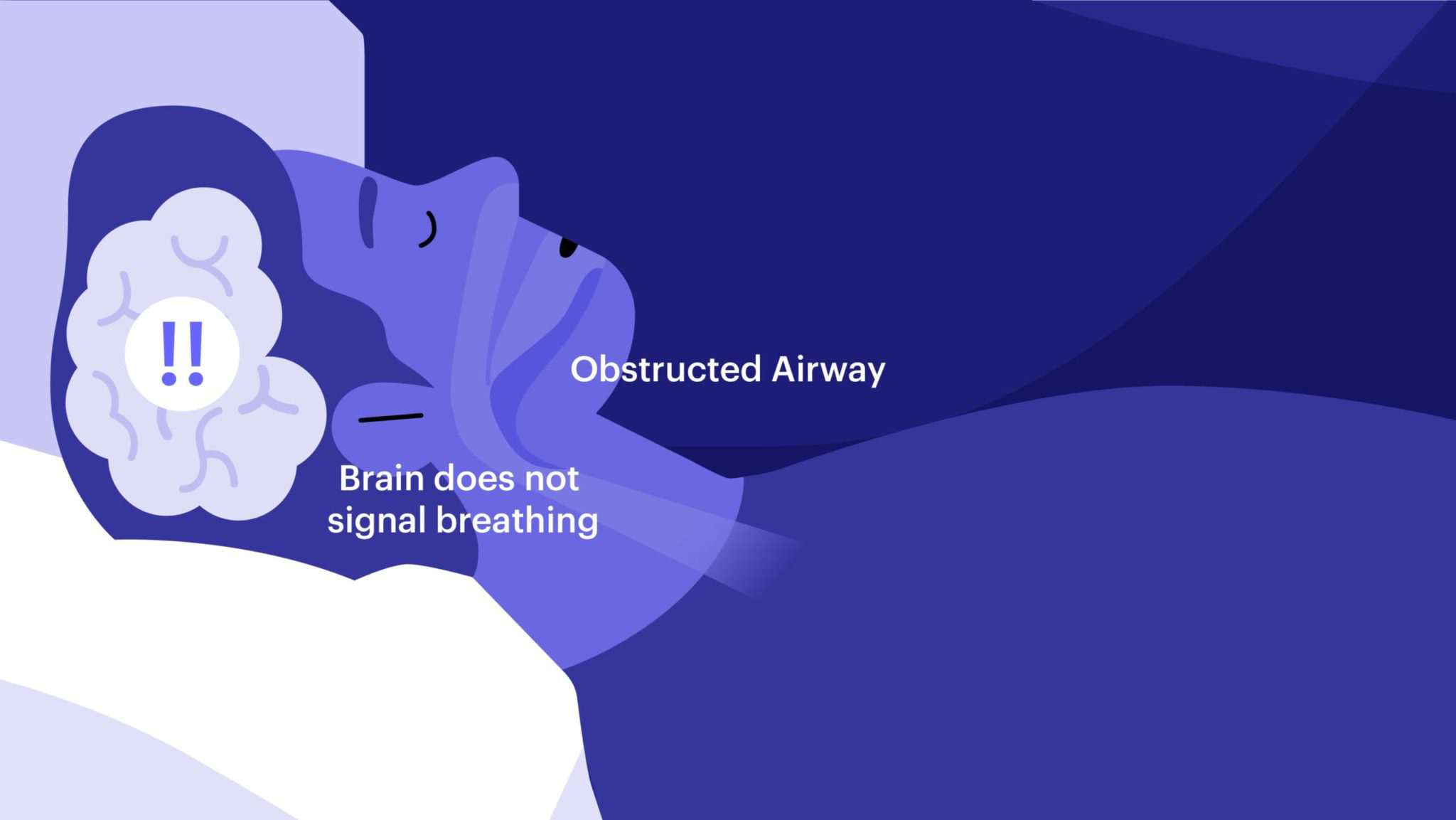
Complex or Mixed Sleep Apnoea
Complex Sleep Apnoea occurs when both obstructive sleep apnoea events and central sleep apnoea events occur during sleep.
Signs and Symptoms of Sleep Apnoea
If you’re concerned about the quality of your sleep, you should talk to your doctor. Some of the symptoms of obstructive sleep apnoea and central sleep apnoea overlap, making it difficult to determine which type you have. The most common signs and symptoms include:
Gasping for air during sleep
Waking up with a dry mouth
Morning headaches
Irritability
Episodes where you stop breathing during sleep, reported by another person
Daytime fatigue
Difficulty staying asleep
Difficulty paying attention while awake
Difficulty thinking clearly
Snoring, including snoring that is especially loud and involves gasping, choking or snorting
Sleep Apnoea Treatment Options
There are a variety of treatments for each type of sleep apnoea.
Some patients experience symptom relief with CPAP, but studies show about 50% of people can’t tolerate or get consistent benefit from CPAP.1
If you have Obstructive Sleep Apnoea and struggle with CPAP, Inspire® therapy is an alternative treatment option which may work for you. Visit the FAQ page to learn more.
You should always consult your doctor about your concerns. If you’re experiencing symptoms, they may suggest a sleep study or test.
FAQRisks of Untreated Sleep Apnoea
People with sleep apnoea are likely to experience constant nightly interruptions and shallower overall sleep, which may lead to sleep deprivation. Untreated sleep apnoea may potentially have serious health implications for persons suffering from such a condition.
Daytime fatigue
High blood pressure
Heart attack
Heart disease
Diabetes
Workplace and automobile accidents
Stroke
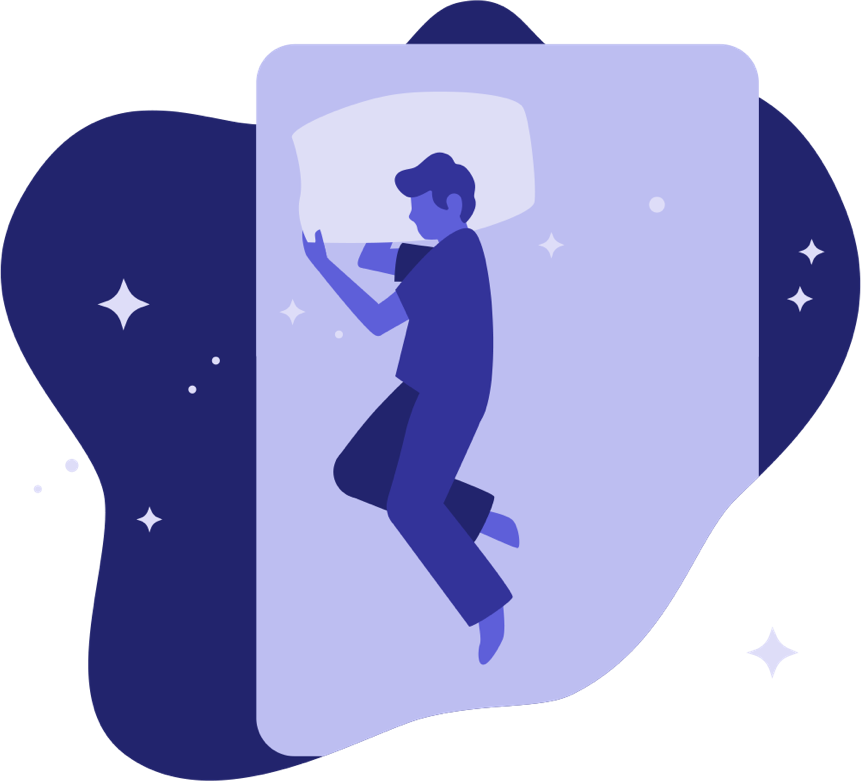
Find a Hospital Near You
Only a trained doctor can determine what treatment options will work best for you. Click below to find a hospital near you.
Find A HospitalCall: +65 8101 0230
